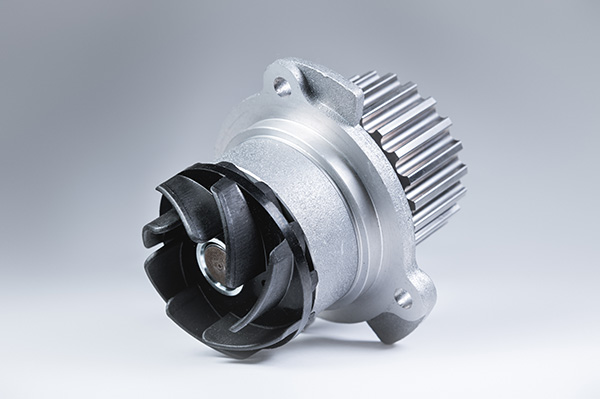
When it comes to your vehicle’s cooling system, the water pump is a key player. This component is responsible for circulating coolant through the engine to prevent overheating. But like any part of your car, it’s not immune to wear and tear. When a water pump begins to fail, it can cause serious damage to your engine if not addressed promptly. So, how can you tell if your water pump is on its way out?
Coolant Leaks
One of the first signs that your water pump may be in trouble is finding puddles of coolant under your car. The water pump has seals and gaskets that can wear out over time, leading to leaks. If you notice a bright green, orange, or even pinkish fluid on your driveway, it’s likely coolant. Don’t ignore these leaks—left unattended. They can lead to low coolant levels and, eventually, engine overheating.
Leaking coolant can also be spotted around the front of the engine, where the water pump is located. If you’re frequently topping off your coolant, it’s a sign that something is wrong. A water pump leak is often the culprit, and it’s best to have it inspected before it turns into a bigger, more costly repair.
Overheating Engine
An overheating engine is a sure sign that your cooling system is not working properly. If your temperature gauge starts to climb higher than usual or you see steam coming from under the hood, your water pump could be to blame. The water pump’s job is to keep coolant circulating through the engine, so when it starts to fail, the coolant flow slows down or stops entirely, causing the engine to overheat.
Frequent overheating can lead to severe engine damage, including blown head gaskets and warped cylinders. If your car’s engine temperature is consistently running hot, it’s time to get your water pump and the entire cooling system checked out by a professional.
Whining or Groaning Noises
Strange noises coming from the front of your engine could point to a failing water pump. A high-pitched whining or groaning sound is often caused by a loose or worn-out water pump pulley or a failing bearing inside the pump. These bearings allow the water pump to turn freely, but they can wear out over time, leading to a grinding or whining noise.
If you’re hearing unusual sounds when your engine is running, especially if the noise gets louder with acceleration, it’s a sign that your water pump may need to be replaced. Ignoring these sounds can lead to the pump seizing up, which can cause even more extensive damage to your engine.
Rust and Corrosion
Water pumps are built to last, but over time, rust and corrosion can take their toll. The presence of rust or mineral buildup on your water pump is a clear indication that it’s nearing the end of its life. Rust can cause the pump’s metal parts to weaken, eventually leading to leaks and reduced efficiency.
This corrosion is often caused by contaminated or old coolant, so it’s essential to keep up with regular coolant flushes to prevent rust from forming. If you notice rust or corrosion on or around your water pump, it’s best to have it replaced before it fails completely.
Poor Heater Performance
If you’ve noticed that your car’s heater isn’t as effective as it used to be, a failing water pump might be the reason. The water pump helps circulate coolant not just through the engine but also through the heater core. If it’s not working correctly, you may find that your heater only blows cold air, even when the engine is fully warmed up.
Reduced heater performance can be frustrating and uncomfortable, especially during the colder months. It’s also a sign that your water pump might not be circulating coolant properly, which can lead to overheating and other engine problems.
Steam from the Radiator
Steam billowing from your radiator or engine bay is a classic sign of a serious cooling system issue, and a failing water pump is often the root cause. If you see steam, it means that your coolant isn’t being circulated effectively, causing it to boil over. This situation requires immediate attention, as driving with an overheating engine can lead to catastrophic damage.
When you notice steam, it’s best to pull over safely and turn off your engine. Continuing to drive can cause your engine to seize up, leading to costly repairs or even a complete engine replacement.
Noticing any of these signs? Don’t wait until it’s too late! Bring your vehicle to Hagin's Automotive today for a comprehensive cooling system inspection. Our expert technicians will make sure your water pump and entire cooling system are in perfect working order. Schedule your appointment now!